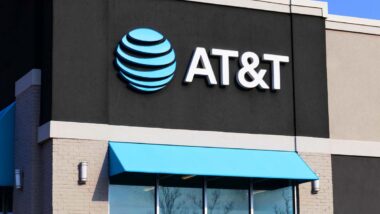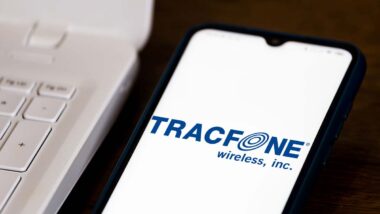Top Class Actions’s website and social media posts use affiliate links. If you make a purchase using such links, we may receive a commission, but it will not result in any additional charges to you. Please review our Affiliate Link Disclosure for more information.
In 2021 there were over 50 billion robocalls in the United States.
A robocall is a call that delivers pre-recorded messages through auto-dialing software, and its purpose is usually to sell consumers something and scam them.
America’s telecommunications watchdogs have attempted to impose heavy financial penalties against illegal robocallers. They have demanded that they repay millions to their victims, but almost no funds have been retrieved years later.
Since 2015, the Federal Communications Commission has ordered violators of the Telephone Consumer Protection Act (a federal law governing telemarketing and robot dialing) to pay $208.4 million.
That massive amount includes forfeiture orders in cases involving robocalling, Do Not Call Registry, and telephone solicitation violations. The FCC has only collected $6,790 of the $208.4 million.
Christopher Roberts, a lawyer with Butsch Roberts & Associates, explained to Top Class Actions that private citizens could help end spam/robocalls by enforcing their rights and using the law – which is more effective than the ability of the government to end these calls.
The reason why there seems to be an increase in robocalls as of late, Roberts says, might be due to a ruling from the United States Supreme Court last year in a case called Facebook v. Duguid.
“That has made it much more difficult for consumers to prevail. I think that more calls are being placed because it’s more difficult to prove that something was an autodialer now than it was before,” Roberts told Top Class Actions.
According to Roberts, as technologies have evolved, it has become easier and cheaper for companies to send large amounts of calls or text messages.
Roberts says the new FCC commissioner has expressed an interest in more vigorously enforcing the laws and imposing penalties against robocallers.
“The government has a role, but I think that consumers have an even more important role,” Roberts told Top Class Actions, “Private citizens have an incentive to stop these calls from coming to their phones, and the way they do that is most commonly is through a federal law called the Telephone Consumer Protection Act, which provides a private right of action for consumers to get $500 and potentially up to $1,500 per illegal call.”
Some states are now starting to adopt statutes that provide additional protections for consumers. For example, Florida has adopted a statute that provides a penalty under state law for robocallers and also now has a more expansive definition of what an autodialer is.
“The government has a role, and it’s really important that the private citizen — the consumer — has a more important role, because the government does not have the resources to pursue all these illegal calls…and there’s billions of these calls placed in this country alone this year,” Roberts told Top Class Actions.
If you’re on the National Do Not Call list and get multiple marketing calls after you’ve been on that list for more than 31 days, the potential recovery for the consumer is $500 to $1,500 per illegal call.
In the TRACED (Telephone Robocall Abuse Criminal Enforcement and Deterrence) Act, Congress gave the FCC new ways to fight unwanted and often illegal robocalls, the top consumer complaint reported to the FCC annually.
“Congress adopted this law to give the consumer a tool to fight back and begin to reclaim their phone and their peace of mind,” Roberts told Top Class Actions.
For consumers to better protect themselves against relentless robocalls, they need to be more informed about their rights, and they need to check their state laws to see if any specific telemarketing laws can be used to help stop these calls.
[getsocial app=”sharing_bar”]
Don’t Miss Out!
Check out our list of Class Action Lawsuits and Class Action Settlements you may qualify to join!
Read About More Class Action Lawsuits & Class Action Settlements:
- Grainworks Recalls Poppy Seeds Due to Salmonella Contamination
- Olaplex Class Action Claims Hair Care Product Sold at Sephora Contains ‘Dangerous Chemical’
- Bioderma Makeup Remover Recalled Over Microbial Hazard That Can Cause Skin, Eye Infections
- Neutrogena Class Action Lawsuit Says Cleansing Towelettes Cause Burns
ATTORNEY ADVERTISING
Top Class Actions is a Proud Member of the American Bar Association
LEGAL INFORMATION IS NOT LEGAL ADVICE
Top Class Actions Legal Statement
©2008 – 2024 Top Class Actions® LLC
Various Trademarks held by their respective owners
This website is not intended for viewing or usage by European Union citizens.















31 thoughts onTCA Explains: How Can Consumers Protect Themselves Against Robocalls?
More info on who qualifies to file a claim please.
I’ve been getting calls and keep telling people take me off your list while on the do not call list.
My family and I have been receiving these calls for a period of three years now They have been coming since June 2019. They claim I have won this Mega Million Contest. But I have to pay them before the funds can be released. They started out asking for $3,000, Then it went down to 1,500, over the years it has gone down as low as $500. But the same Jamaican gentleman has called for three years. Over the years several other gentlemen have called on his behave. The one thing the first gentleman doesn’t seem to realize is that he has an extremely distinctive voice. So we know immediately that it’s him. The other thing is that in the beginning all of the caller ID numbers were from Jamaica. Now they hide their numbers with fake numbers. It started with calls coming in two or three times a day. Then once a day, to once a week, to twice a month, to once a month. Now coming up on the three year mark the calls are now about once every other month. I would really like to have these calls to stop completely and be compensated for the years of harassment. Where do we go from here?
I get tons robot calls daily how fo i join this??
WHere do I go to report these calls and try to get compensation??
How do you get on the class action law suit for robo and unsolicited calls?. I have been on the national no call registry for years but that has never stopped them. You block them on one number, they go get another number to harass you from. And now they have the audacity to send texts, I am too furious. This needs to end. I have so many unsolicited calls, I stopped counting and have them saved on my phone as “spam calls”.
Numbers keep ringing my phone when I block they keep calling and texting
These calls are nine stop I block one number they call from a different one.
I ge4t these calls all the time.
Been filed on A-1 Diabities since 2020 and was told they were filing bankruptcy!!! So if companies can get away from paying they file bankruptcy and reopen in a different name!! Pointless to go through the trouble… Regardless they should still owe!!